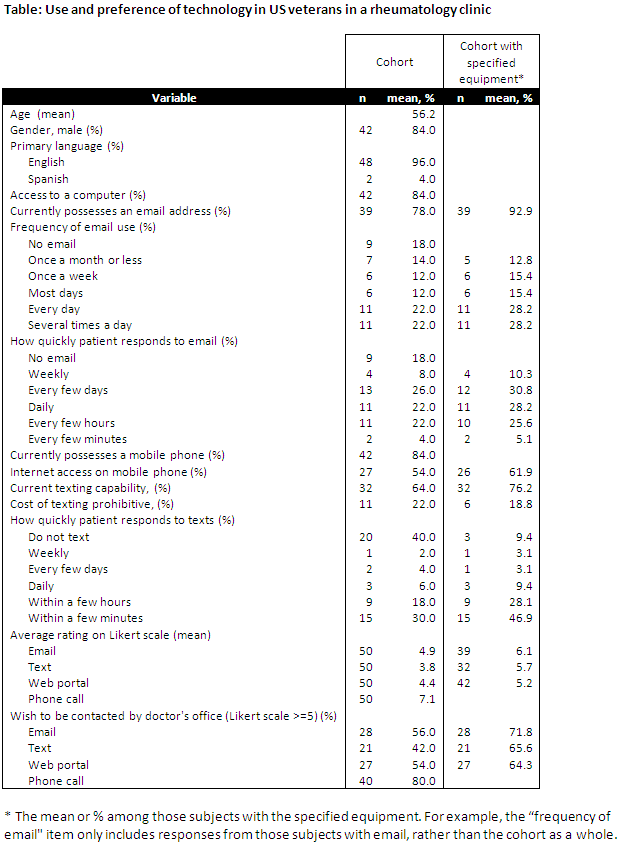Session Information
Title: Health Services Research, Quality Measures and Quality of Care - Innovations in Health Care Delivery
Session Type: Abstract Submissions (ACR)
Disclosure:
L. A. Davis,
None;
P. Luong,
None;
S. Bobba,
None;
H. Dischinger,
None;
I. Quinzanos,
None;
L. Caplan,
None.
« Back to 2013 ACR/ARHP Annual Meeting
ACR Meeting Abstracts - https://acrabstracts.org/abstract/acceptability-of-various-technology-based-communication-modalities-in-a-rheumatology-clinic/

